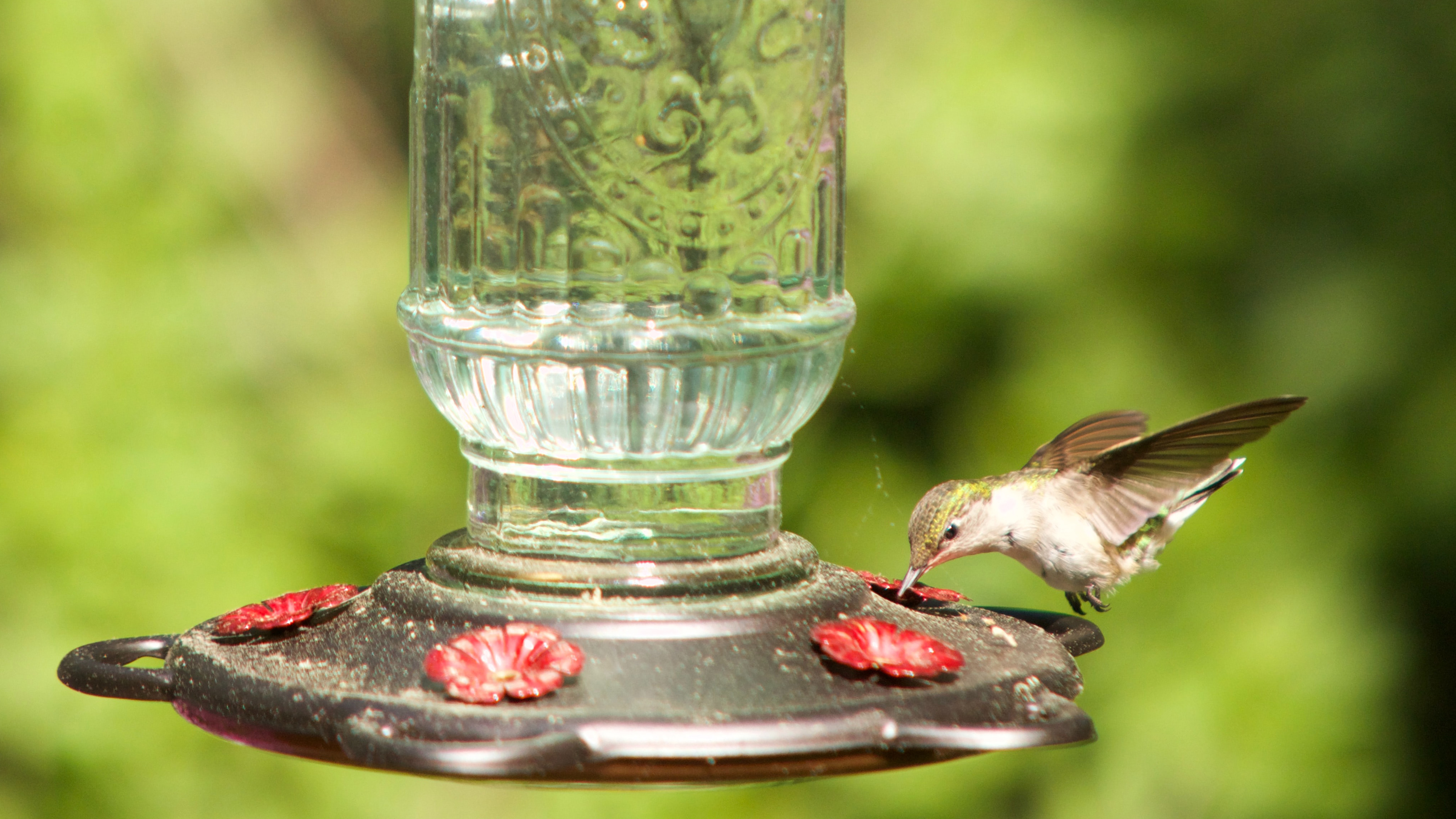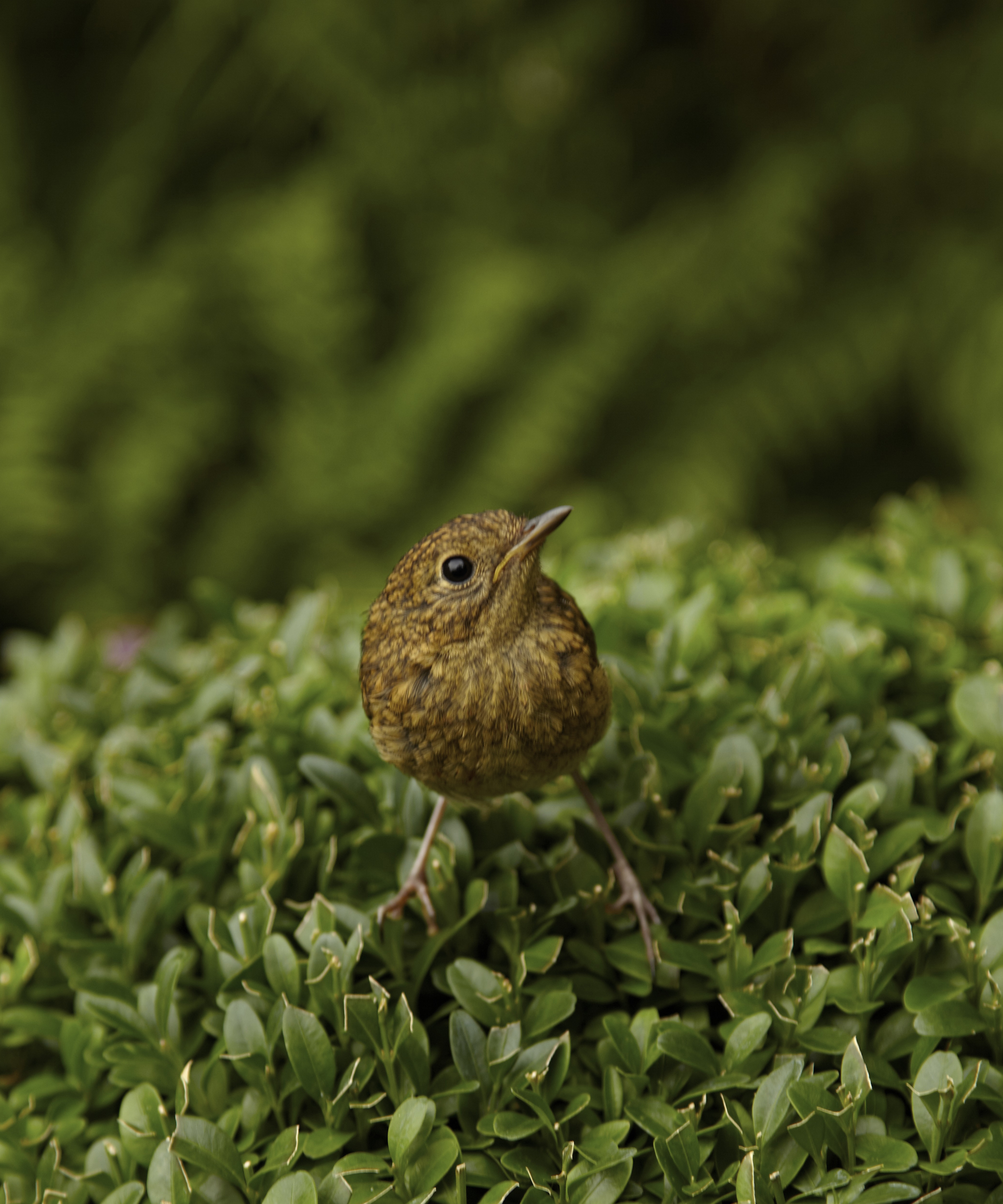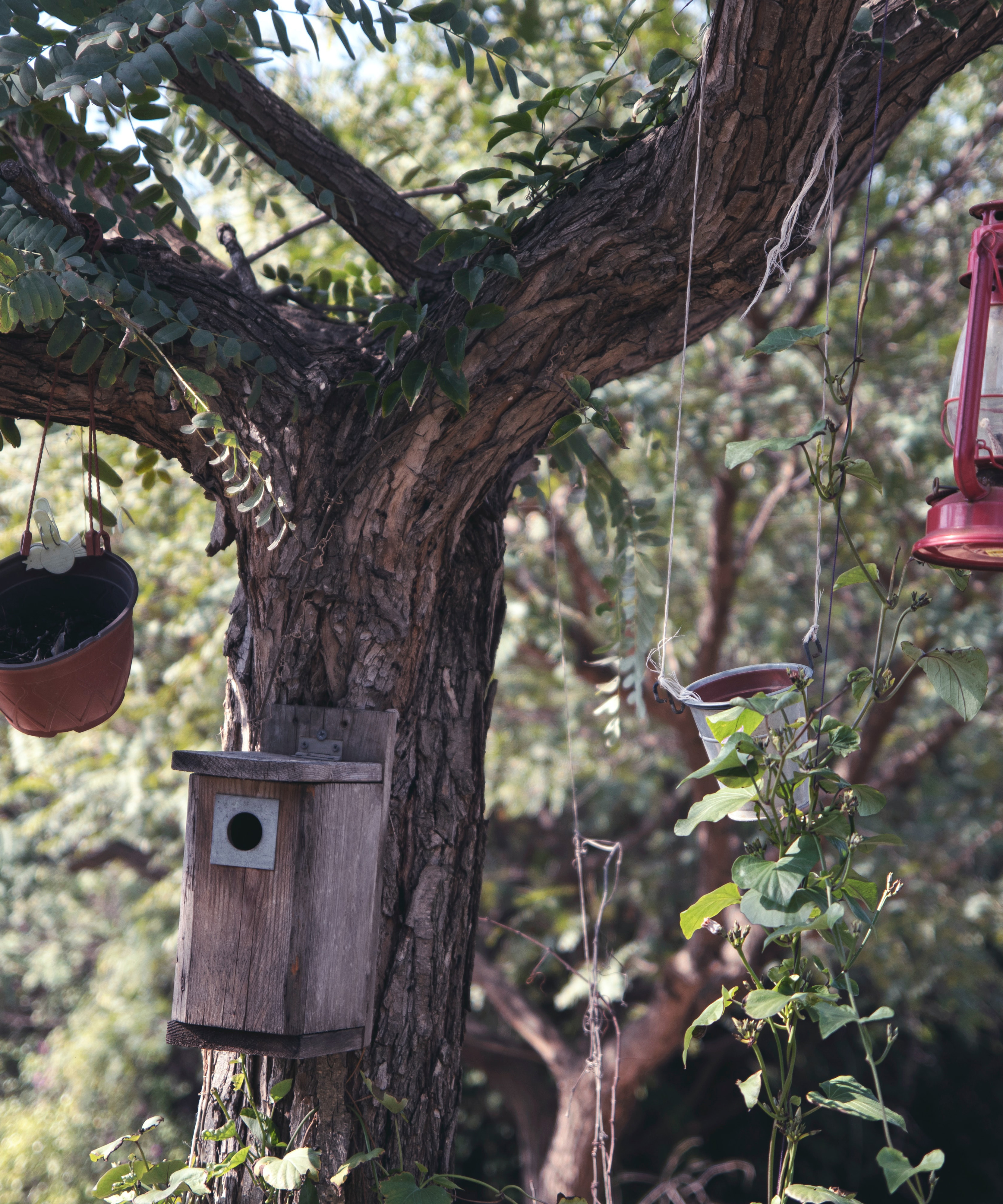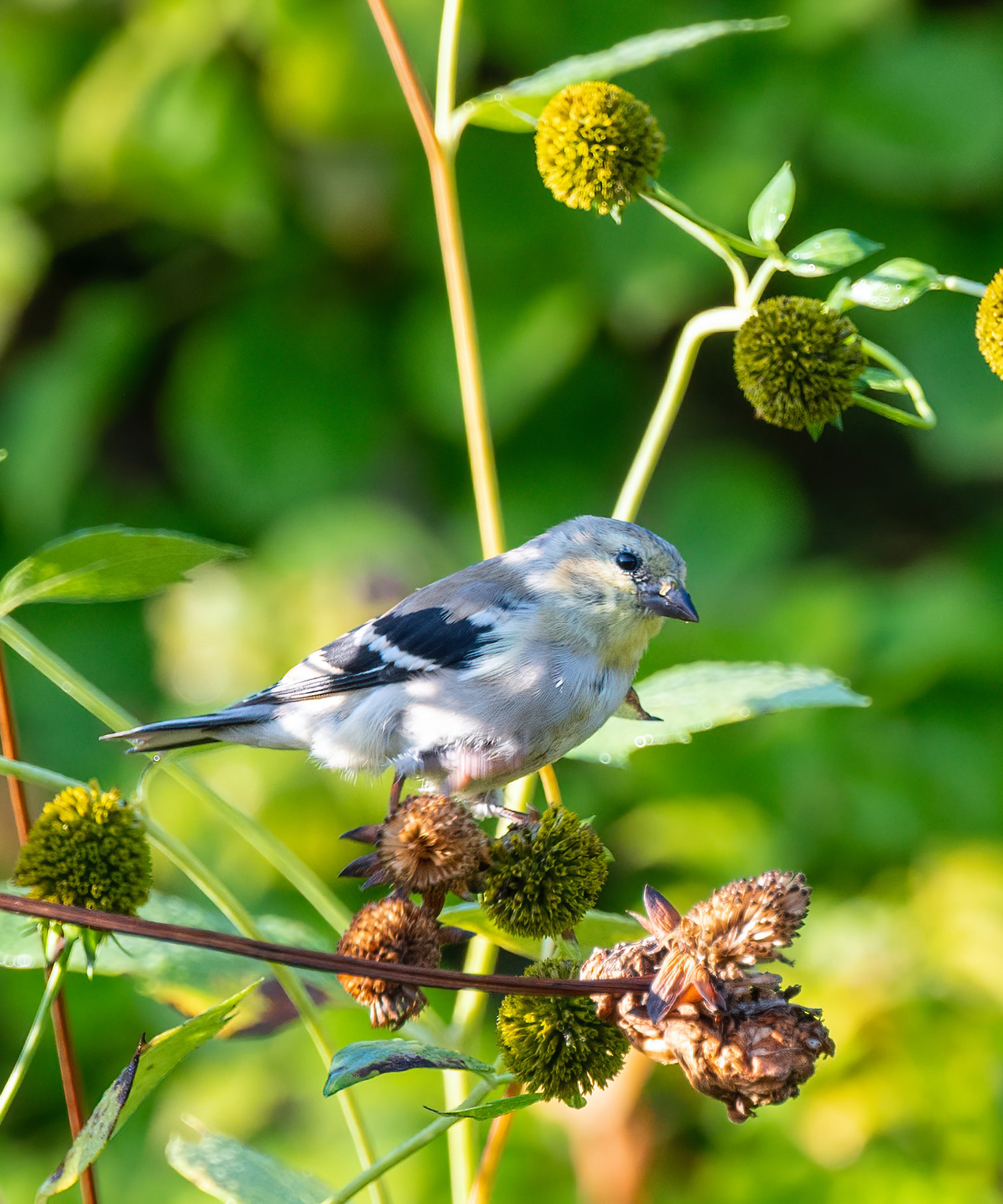Wildlife expert reveals the two surprising things never to feed to birds – and what to give them instead
Knowing what not to feed wild birds will ensure they stay happy and healthy while visiting your backyard


Design expertise in your inbox – from inspiring decorating ideas and beautiful celebrity homes to practical gardening advice and shopping round-ups.
You are now subscribed
Your newsletter sign-up was successful
Want to add more newsletters?

Twice a week
Homes&Gardens
The ultimate interior design resource from the world's leading experts - discover inspiring decorating ideas, color scheming know-how, garden inspiration and shopping expertise.

Once a week
In The Loop from Next In Design
Members of the Next in Design Circle will receive In the Loop, our weekly email filled with trade news, names to know and spotlight moments. Together we’re building a brighter design future.

Twice a week
Cucina
Whether you’re passionate about hosting exquisite dinners, experimenting with culinary trends, or perfecting your kitchen's design with timeless elegance and innovative functionality, this newsletter is here to inspire
Witnessing a familiar bird visit your backyard is one of life's little joys – so it is only natural to encourage these creatures to return by leaving tempting treats around our outdoor spaces. However, according to BBC Springwatch presenter Iolo Williams, some popular bird foods are actually causing more harm than good.
With brighter days provoking more time in our gardens, the Welsh wildlife expert urges us to consider our bird food more carefully in a bid to promote biodiversity on our doorsteps and take care of our feathered friends.
Working alongside the British-based homes and garden retailer Homebase, Iolo Williams suggests undertaking 'small changes' in our outdoor spaces so that, collectively, we can make 'a big impact and create a home for all creatures, big and small.' As avid-bird lovers, we're taking notes on everything he has to say about feeding birds in winter and more.
What not to feed wild birds

Perhaps the most important but most surprising of Iolo's tips is his suggestion that we should never feed a bird bread, as this can be extremely harmful. 'It offers very little nutrition and can fill up a bird's stomach,' Iolo declares.
Iolo continues, suggesting milk is equally as harmful and can 'can cause diarrhea and sickness' among garden birds. Instead, he suggests leaving some water, which is 'just as important as food for the birds and other wildlife.'
See: Eco-friendly garden ideas – expert tips on creating an eco-friendly backyard
What can birds eat?

Instead, the expert suggests leaving a 'variety of high energy foods, such as fat balls, peanuts, mixed seeds, and sunflower hearts.'
Design expertise in your inbox – from inspiring decorating ideas and beautiful celebrity homes to practical gardening advice and shopping round-ups.
'Water is essential for birds to clean their feathers as well as to drink. A small garden pond is ideal, but a bowl of water or even an upturned bin lid will suffice. Water is also important for mammals such as hedgehogs,' Iolo adds.
As ever, everything you put out should offer them a balanced diet.
What scraps can I feed wild birds?
Don't put out raw vegetables – birds are not able to digest many of these kitchen scraps. However, you can put peas and sweetcorn out for them, as well as cooked potato, and some fruits, such as apples and pears – you may see birds snacking on fallen fruits in your garden naturally.
Raw meat is also not something birds can eat, although they will eat meat fat – and they will enjoy cheese.
As ever, put bird food out of reach of cats and dogs and, of course, rats.
Can birds eat raisins?
Yes, birds can eat raisins, sultanas and currants, too, but it is a good idea to soak them in dry weather. A note here for dog and cat owners: dried fruits are amongst the food that birds enjoy but which can be harmful to your pets. Always check before you feed birds that you are not putting out something that will make your pet ill.
Can birds eat porridge oats?
Yes, birds can eat porridge oats, but they need to be dry – cooked (or wet) and they will stick to and set around birds' beaks. Birds can also enjoy other dry breakfast cereals, but, as with bread, these shouldn't be your first option because they will fill up birds' stomachs like bread does, and provide little nutrition in return.
How to attract birds to a garden
After revealing the two crucial things that birds need to avoid, Iolo highlighted another mistake that may be harming a bird's wellbeing in our garden.
'Many people cut ivy from trees, believing that it kills its host. In fact, ivy is merely using the tree for support and is one of the most beneficial plants for wildlife. It is an evergreen and, as such, provides shelter for several species of birds, insects, and mammals throughout the year. Birds such as wood pigeons, blackbirds, and overwintering blackcap love ivy berries,' Iola warns.

See: Small garden ideas – maximize a compact gardening space
Iolo's advice comes after the UK charity Royal Society for the Protection of Birds revealed that the last year had seen more than half of Brits more aware of the nature around them. Therefore, creating a safe sanctuary for birds is more important than ever before. Following this, Louise Midgley from Dobbies also suggests creating a shady shelter for birds to stay cool protected while in your garden.
Armed with this expert advice, we look forward to welcoming these therapeutic creatures safely into our gardens throughout this spring and summer, and beyond.

Megan is the Head of Celebrity Style News at Homes & Gardens, where she leads the celebrity/ news team. She has a history in interior design, travel, and news journalism, having lived and worked in New York, Paris, and, currently, London. Megan has bylines in Livingetc, The Telegraph, and IRK Magazine, and has interviewed the likes of Drew Barrymore, Ayesha Curry, Michelle Keegan, and Tan France, among others. She lives in a London apartment with her antique typewriter and an eclectic espresso cup collection, and dreams of a Kelly Wearstler-designed home.